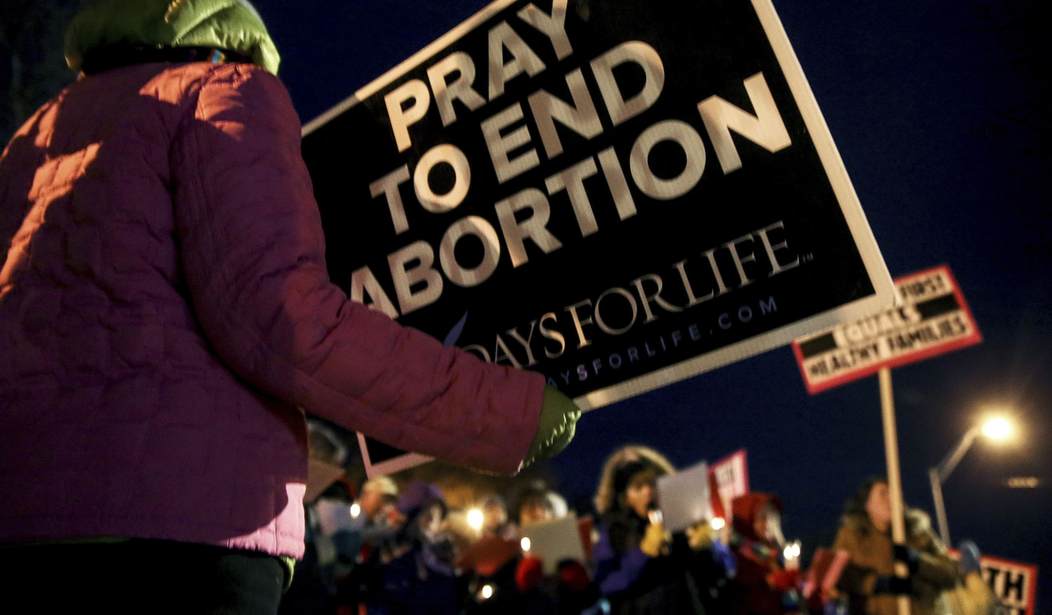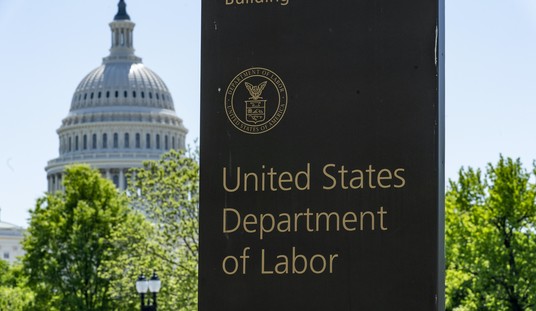Yesterday, TX Gov. Greg Abbott signed the “Heartbeat Bill” into law. The law prohibits all abortions in the state after about six weeks into pregnancy, which is generally when a heartbeat can be heard on ultrasound. The law has provisions that would allow private citizens to file civil lawsuits against doctors, staff, or even a patient’s family or friends who “aid and abet” in such procedures.
BREAKING: @GovAbbott signs a bill into law banning abortion after a child's heartbeat can be detected.
THANK YOU to the human rights advocates who brought this bill through the finish line.
Much work is still to be done, but this is a great step forward. https://t.co/51sMuVPl0H
— Live Action (@LiveAction) May 19, 2021
The Associated Press had this to say:
Republican Gov. Greg Abbott on Wednesday signed a law that bans abortions in Texas before many women even know they are pregnant and differs singularly from similar efforts nationwide: leaving enforcement to private citizens, who can sue doctors or anyone who helps a woman get an abortion.
The law puts Texas in line with more than a dozen other states that ban abortions after a fetal heartbeat can be detected, possibly as early as six weeks. It would take effect in September, but federal courts have mostly blocked states from enforcing similar measures.
The dominoes are falling, in what is hoped to be a complete knockdown of Roe v. Wade. As I reported a few days ago, the pro-abortion machine is noting these moves and sounding the alarm bells. The pro-life movement is finally learning how to play hardball and strategizing for the long game.
At least 13 states have moved to introduce this type of legislation, drafted their own heartbeat-style bills, or signed them into law. So far they include Alabama, Florida, Georgia, Kentucky, Louisiana, Mississippi, Missouri, North Dakota, Ohio, and Tennessee.
Despite some of these laws not having been implemented because of the pro-abortion lobby blocking with lawsuits and countersuits, the Population Research Institute, which tracks this form of legislation and its effectiveness, sees them as a strong part of the strategy to overturn Roe, by further eroding the law from statehouse to statehouse.
Heartbeat laws ban abortion from the moment in pregnancy that a heartbeat can be detected. Heartbeat laws are among the strongest pro-life laws ever adopted on the state level since the U.S. Supreme Court in its 1973 Roe v. Wade decision prohibited states from banning abortion prior to viability. Additionally, these laws may prove to be key in leading the Supreme Court to reconsider and possibly overturn Roe v. Wade.
An embryonic heartbeat can be detected very early in pregnancy, typically by 6-10 weeks gestation using the best methods of standard medical practice and typically by 7-12 weeks via transabdominal ultrasound.1 However, some studies claim to have been able to detect embryonic heartbeats via ultrasound even earlier than 6 weeks.2
Studies have shown that less than 5% of normal, natural pregnancies result in spontaneous miscarriage after a heartbeat is detected.3,4,5 This has been shown to hold true even among women with clinically diagnosed threatened miscarriages.6,7 The presence of a fetal heartbeat is a very strong indicator that a child will survive to birth.
In light of the 2019 Tennessee heartbeat law going before the 6th Circuit Court of Appeals today, as well as Monday’s SCOTUS decision to hear Dobbs v. Jackson Women’s Health Organization, the abortion lobby is moving into hyperdrive to discredit and destroy the pro-life argument of heartbeat viability as just a marketing ploy used to manipulate the public in championing laws that further restrict abortions.
Yet bans pegged to the “fetal heartbeat” concept have been signed into law in 13 states, including Cackovic’s home state of Ohio. None has taken effect, with all but the most recently enacted being struck down or temporarily blocked by the courts. Now, one of the most restrictive, signed by Tennessee’s Republican Gov. Bill Lee last year, goes before the 6th U.S. Circuit Court of Appeals on Thursday.
Proponents of these so-called “heartbeat bills” are hoping for a legal challenge to eventually reach the U.S. Supreme Court, where they look for the conservative coalition assembled under President Donald Trump to end the constitutional right to abortion protected under the high court’s landmark 1973 Roe v. Wade ruling.
The notion that abortion as early as six weeks into pregnancy “stops a beating heart” helped propel the measures to rise above persistent constitutional concerns in the states that have backed them.
The concept’s originator, Ohio anti-abortion activist Janet Folger Porter, spoke openly about her strategy in an email to supporters last year — deftly side-stepping whether the packaging of the bill was medically true.
“The slogan, ‘Abortion stops a beating heart,’ has long been an effective way to highlight the injustice and inhumanity of abortion,” Porter wrote of the state’s law, the Ohio Heartbeat Protection Act.
However, the pro-abortion lobby’s argument of “science” has been weakened by anti-life politicians and so-called health officials making the 2020 pandemic a political football. As the dust settles on the lockdowns and their adverse effect on not only the economy, but the toll on human lives outside of the virus, the Left’s use of science as a cudgel for control, as opposed to a defense of life and freedom, will be the lingering stain on the pro-abortion/anti-choice movement.















Join the conversation as a VIP Member